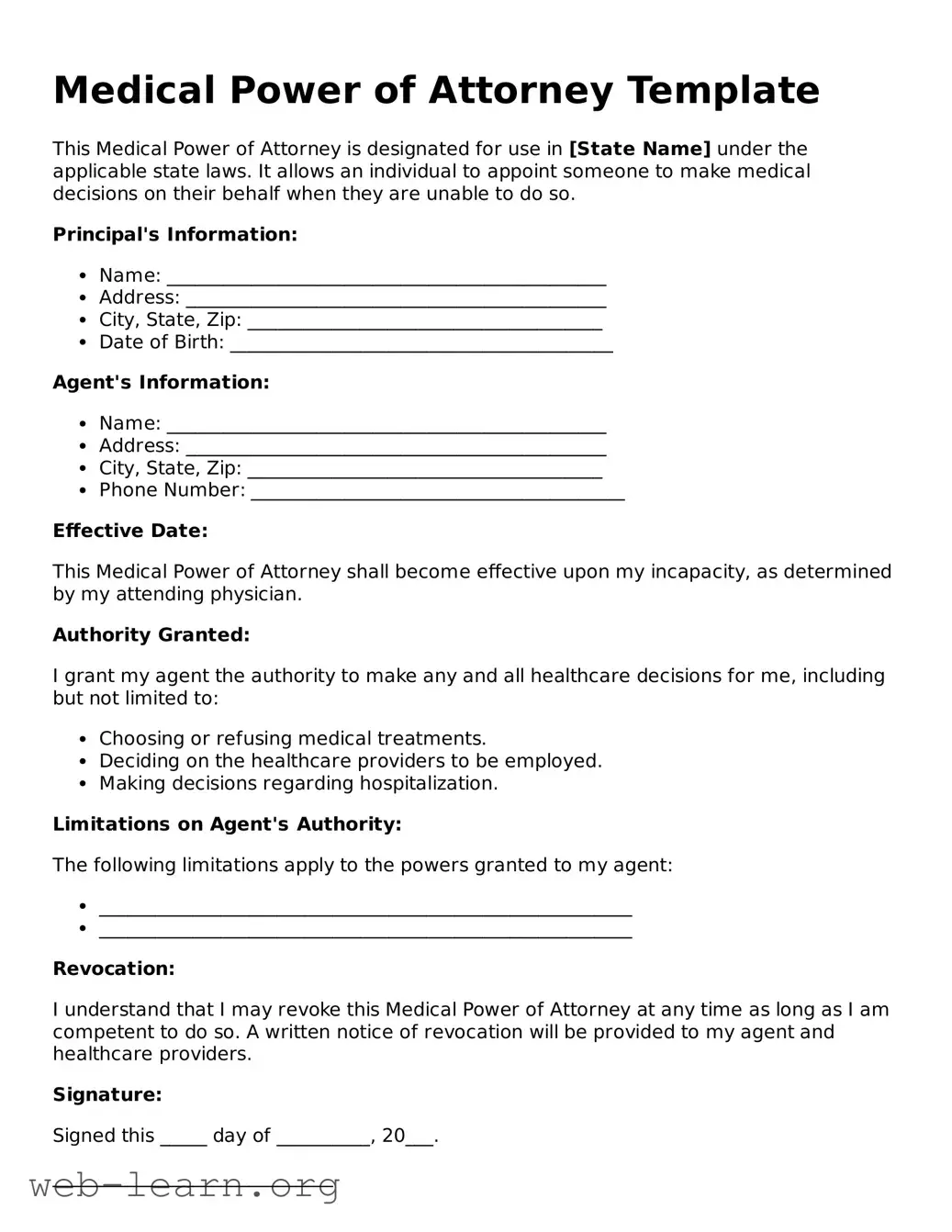Medical Power of Attorney Template
This Medical Power of Attorney is designated for use in [State Name] under the applicable state laws. It allows an individual to appoint someone to make medical decisions on their behalf when they are unable to do so.
Principal's Information:
- Name: _______________________________________________
- Address: _____________________________________________
- City, State, Zip: ______________________________________
- Date of Birth: _________________________________________
Agent's Information:
- Name: _______________________________________________
- Address: _____________________________________________
- City, State, Zip: ______________________________________
- Phone Number: ________________________________________
Effective Date:
This Medical Power of Attorney shall become effective upon my incapacity, as determined by my attending physician.
Authority Granted:
I grant my agent the authority to make any and all healthcare decisions for me, including but not limited to:
- Choosing or refusing medical treatments.
- Deciding on the healthcare providers to be employed.
- Making decisions regarding hospitalization.
Limitations on Agent's Authority:
The following limitations apply to the powers granted to my agent:
- _________________________________________________________
- _________________________________________________________
Revocation:
I understand that I may revoke this Medical Power of Attorney at any time as long as I am competent to do so. A written notice of revocation will be provided to my agent and healthcare providers.
Signature:
Signed this _____ day of __________, 20___.
______________________________
Principal’s Signature
Witness Information:
- Witness Name: _________________________________________
- Witness Signature: ______________________________________
- Date: _____________________________________________
Please consult a qualified attorney to ensure that this document meets all legal requirements for your specific needs.
